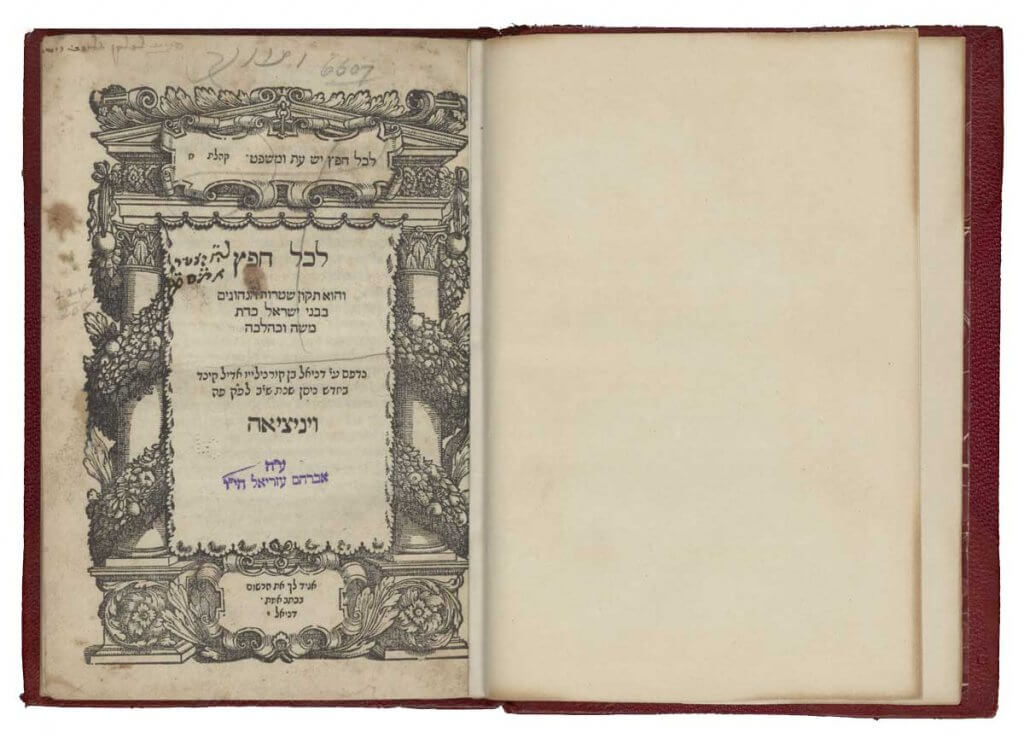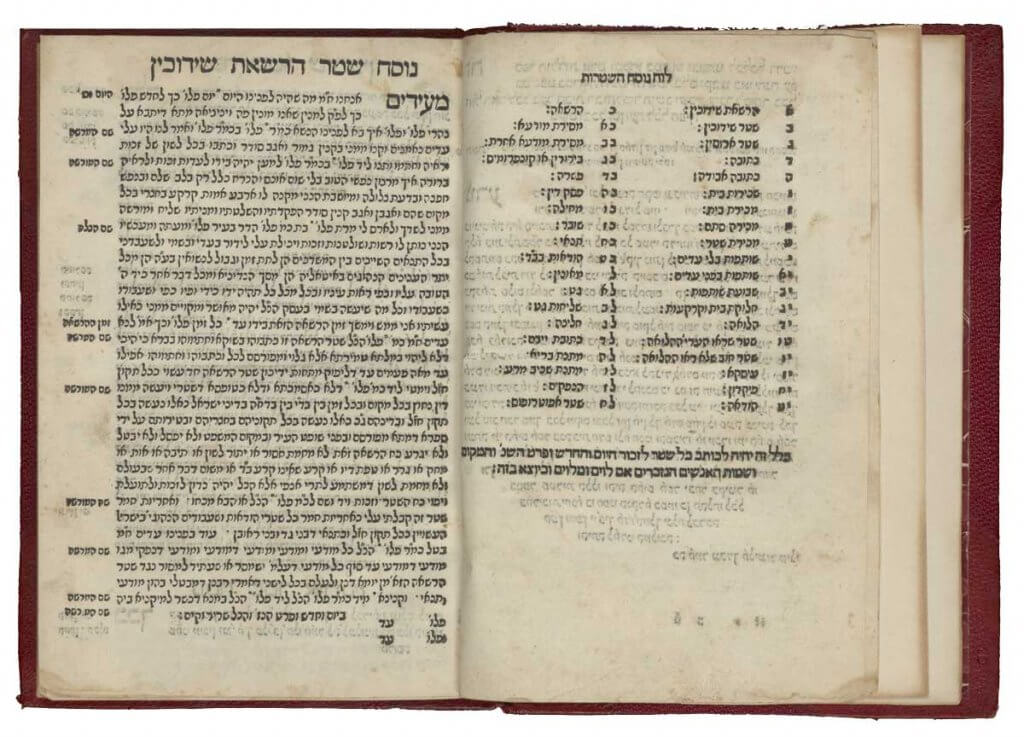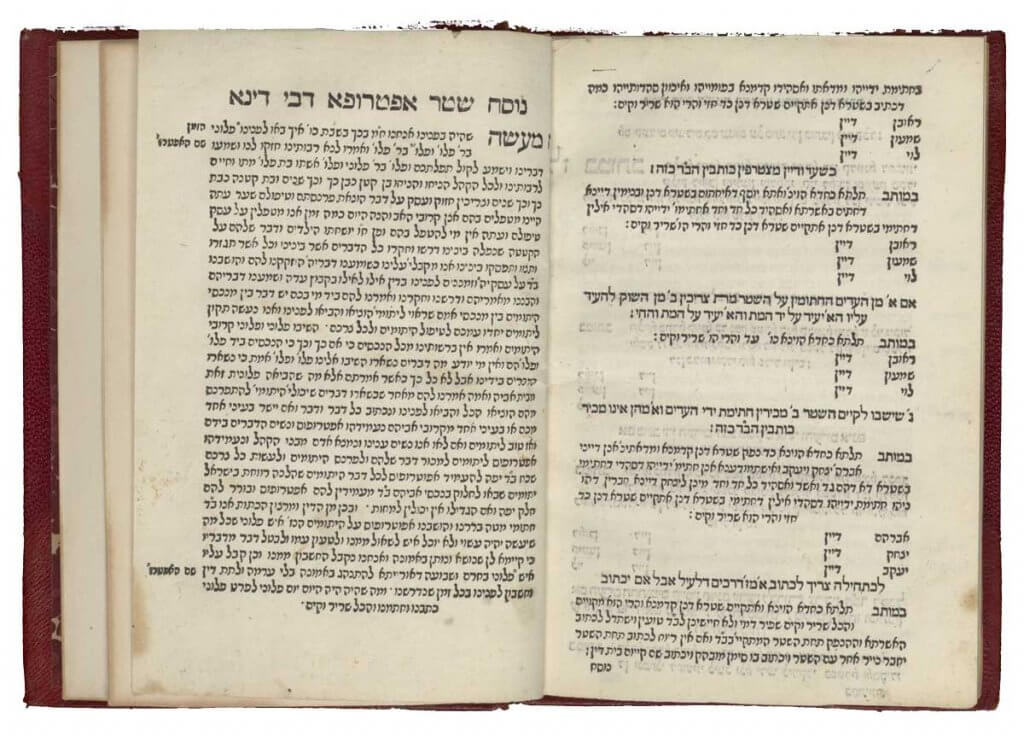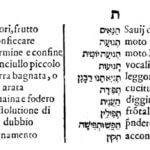Eliezer Melli, לכל חפץ (“For Every Desire”). Venice: Daniel Adelkind, 1552.
This rabbinic treatise was dedicated to Judah ben Samuel Abarbanel, worthy scion to one of the most distinguished Jewish families of his day, and to his mother, Signora Benvenida Abarbanel of Naples.
Benvenida Abravanel was an influential woman in early modern Italy. Her place and date of birth remain uncertain. She was the daughter of Jacob Abravanel, brother of Isaac Abravanel (1437–1508), the Spanish Jewish exegete, philosopher and statesman. Isaac’s son, Samuel (1473–1547), married Benvenida. They settled in Naples and left the city in 1541 after an edict requiring Jews to wear a badge.
The Abravanels accepted the invitation of Ercole II, Duke of Este, and headed for Ferrara, also spending time in Venice. After Samuel’s death, Benvenida became the executrix of his will, something which prompted a rabbinic controversy she eventually won.
The will included specific clauses on the family’s books, many of which had belonged to Isaac. In November 1547 Jacob and Judah together repurchased a treasured manuscript, a copy of Maimonides’ Mishneh Torah which had once been in the possession of their grandfather.
In 1552 Eliezer Melli dedicated a book, Le-Khol Hefez, a collection of document formularies for Jewish life published in Venice, to Judah, the son of the late Samuel Abravanel. In it, he noted: “And the name of his wise mother, all of her is complete perfection (kulah kelulah min ha-kol), Señora Ben Venida, yarom hodah” (reprinted in Yalkut Hilkhot Shetarot. Monroe, NY: 1993).






